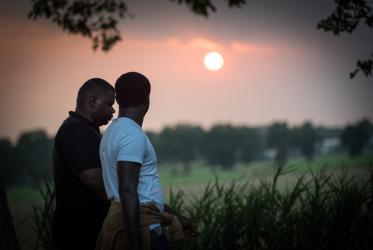Prof. Anant Rambachan is a Hindu scholar from Trinidad and professor of religion, philosophy and Asian studies at St Olaf College, Minnesota, USA
Our need for each other is today nowhere more evident than in the challenge of overcoming violence. In paradoxically contrasting ways, violence unites our traditions. It unites us in condemnation and responsibility for the fact that, at one time or another, in one place or another, our traditions have legitimized violence through active support or silence and indifference. Those of us who are often quick to claim exemption from complicity with violence narrowly identify violence with warfare. We ignore the violence that is structurally embedded in our communities by the unjust ordering of our economic and political life and by oppression on the basis of race, gender, caste, ethnicity and social status. For centuries of religiously sanctioned dehumanization and oppression of the Dalits, we Hindus must own responsibility and work towards its overcoming. We must begin with a critical examination of the assumptions of our tradition that make this caste-based discrimination and violence against the Dalits possible.
If violence unites us in responsibility and guilt, it also unites us in the conviction that our traditions are not defined by the way of violence, but by a shared hope for and commitment to peace, justice and compassion. It is these non-negotiable values that define the essence of our traditions and that we must actualize through interreligious cooperation. Our traditions are rich in teachings and examples for this task. Ahimsa or non-violence is the supreme ethical expression of Hindu religious insight, but must today be enlarged in interpretation and application to overcome violence in all of its diverse forms. Interior peace must not detach us from the world, but liberate us to commit ourselves to the actualization of peace in our communities.
As a Hindu pilgrim who, for twenty-five years, has been traveling the interreligious path of challenge and enrichment with precious friends from the World Council of Churches, especially through its pioneering program on interreligious relations and dialogue, I find the inspiration for my small steps in the nature of God who my tradition asks me to recognize and embrace in every face. The love of God is inseparable from the love of every being and this love is meaningfully expressed only through relationships that affirm the equal worth and dignity of all. It is this love that energizes us for the work of transforming our world.
The transformation of our world through justice and peace will be the fruit of a divine-human partnership, beautifully described in a couplet from the Ramayana, one of Hinduism's favorite sacred text.
Rama sindhu ghana sajjana dhira
Chandana taru hari santa samira
God is the ocean; God's servants are the rain-clouds
God is the sandal tree; God's servants are the winds
The ocean is the source of all life-giving water, but it is the clouds that transform the earth by bringing water to our fields, rivers and lakes. The fragrance of the sandal tree is beautiful, but the wind is required to convey and spread it everywhere. In a similar way, the grace of God transforms our world only when it finds expression in lives of loving compassion.
Today, our human partnership with God cannot be limited to any one religious community. Our ability to make manifest the reality of God in our world requires us to learn about and from each other. It demands that we labor together interreligiously so that our world reflects the nourishing and fragrant beauty of God.
On behalf of the guests of other faiths, I want to express our heartfelt joy and gratitude for the honor of being with you and participating in this important event in the life of the World Council of Churches. Your choice, once again, to have people with different religious commitments and worldviews listening and contributing to your deliberations, is a strong testimony of your value for the multireligious character of our world, our interrelated lives and our need for each other. Our traditions speak not only of individual human destiny and fulfillment, but, even more importantly, proclaim a joyful vision of existence that is characterized by love, justice, peace, prosperity and freedom from violence and oppression. Any religion that dedicates itself to the pursuit of this vision must reach across boundaries and join hands with people of other faiths in confronting and overcoming the causes of human suffering. This is a necessary, though not easy task, requiring humility, wisdom and patient love. We do not have a choice between acting separately and acting together. Our hopes for just and peaceful communities will be realized together or not at all. Your invitation and our response unite us in this understanding.




